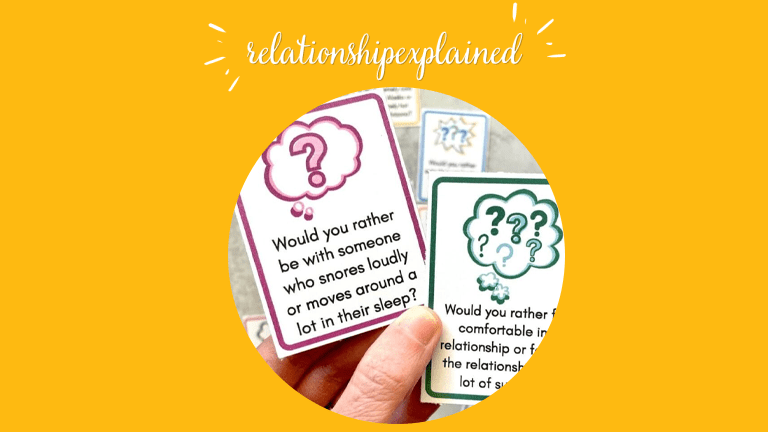Have Your Cake And Eat It Too Meaning In A Relationship
Having your cake and eating it too" in a relationship implies desiring both freedom and commitment, often leading to unrealistic expectations. It suggests wanting the benefits of a relationship without sacrificing personal independence. Balancing these desires challenges the relationship's dynamics and requires open communication to achieve mutual satisfaction.
Are you tired of hearing the old adage, "you can't have your cake and eat it too?" Well, prepare to be pleasantly surprised!
In this informational article, we delve into the intriguing meaning behind the famous phrase "Have your cake and eat it too" in the context of modern relationships. Contrary to popular belief, this idiom takes on a fresh perspective, advocating for a harmonious balance between individuality and togetherness within a romantic partnership.
We explore how couples can maintain their personal identities, pursue individual ambitions, and still savor the sweetness of a deeply connected relationship. By understanding the essence of this phrase, we uncover valuable insights and practical tips to create a thriving and fulfilling union that truly allows you to have your cake and eat it too!
What Does “Have Your Cake And Eat It Too” Mean?
In the context of a relationship, "Have your cake and eat it too" means wanting to enjoy the benefits of two conflicting situations simultaneously. When it comes to dating advice, we know that we shouldn’t treat women or anyone merely as objects or expect the same benefits from multiple partners without considering their feelings as human beings.
For example, if a man maintains an intimate relationship with his best friend while dating other women, it disregards the emotional impact on both his friend and the other women. Though some may argue that it makes sense to maintain such arrangements, the vast majority of women would find it disrespectful and unacceptable.
Instead, it's essential to treat everyone involved with respect and recognize the emotional consequences of such actions. For instance, a woman may have her ex-husband as a close friend. And while she can pursue new relationships after a divorce or legal separation, it would be better to acknowledge her partner’s feelings too.
Ultimately, finding fulfillment in a relationship means understanding the needs and emotions of others and making thoughtful choices that respect everyone involved.
What Is The Origin And History Of The Idiom “Have Your Cake And Eat It Too?”
The origin of the idiom "Have your cake and eat it too" can be traced back to the 16th century in England. The phrase was initially recorded in the form of "you cannot eat your cake and have it" in a letter written by John Heywood in 1538.
The idiom's meaning revolves around the idea of wanting to possess and enjoy two conflicting things simultaneously. The phrase "have your cake" refers to the possession of the cake, while "eat it too" signifies the act of consuming or enjoying it. However, once the cake is eaten, it can no longer be retained in its original form.
It is important to note that in modern English, “eating” a cake and “having” it means the exact same thing. But considering that the action of “having” refers to possession, the idiom makes more sense in its reverse form - “eat the cake and have it too!”
How To Avoid Falling Into The Temptation Of Having Your Cake And Eating It Too?
1. Balancing Independence And Commitment In A Relationship
A. Importance Of Personal Growth And Development
Encourage each other's personal growth and aspirations. Support one another in pursuing individual goals and ambitions outside the relationship. This allows both partners to maintain their identities and interests.
B. Maintaining Separate Interests And Hobbies
While sharing common activities can strengthen a bond, having separate hobbies and interests is equally crucial. This provides each partner with a sense of autonomy and fulfillment outside the relationship.
C. Open And Honest Dialogue
Foster an environment of open communication where both partners feel safe expressing their own actions, thoughts, feelings, and desires. This transparency can help prevent misunderstandings and unrealistic expectations.
D. Handling Differences And Conflicts Respectfully
Conflicts are inevitable in any relationship. The key is to address them with respect and understanding. Work as a team to find compromises and solutions that honor both partners' needs and desires.
2. Nurturing Emotional Intimacy
A. Emotional Vulnerability
Encourage open and honest communication about feelings and emotions. Be willing to share your fears, dreams, and vulnerabilities with each other. This emotional vulnerability creates a deeper connection and fosters a sense of trust and understanding.
B. Understanding Love Languages
Discover each other's love languages and make an effort to express love in ways that resonate with your partner. Understanding how your partner feels most loved can lead to a more meaningful and intimate connection.
C. Closing The "Door Open"
In the context of "having your cake and eating it too," it is essential to close the metaphorical "door" to other romantic options and focus on the relationship at hand. By fully committing to each other emotionally, you can avoid the temptation of seeking "more cake" outside the relationship.
D. Eating The Cake
Instead of seeking other options, invest in your relationship wholeheartedly. Enjoy the "cake" of emotional intimacy you have with your partner. Savor the joys and challenges of the journey together.
E. Life Is Good For Good Men And Women
Recognize that the desire for multiple partners or relationships may seem tempting, but true emotional fulfillment often comes from investing deeply in one committed and loving partnership. High-value men and women understand the value of emotional intimacy and prioritize nurturing it within their relationships.
F. Saying "No" To Temptation
In challenging times, remind yourself of the emotional bond you share with your partner. Saying "no" to the temptation of seeking more outside the relationship reinforces your commitment to emotional intimacy and strengthens the connection you have with your partner.
3. Maintaining Personal Space And Boundaries
A. Communicate Clearly
Discuss the importance of personal space and boundaries openly with your partner. Make it clear that both of you value your individuality and need time and space for personal growth and reflection.
B. Respect Each Other's Privacy
Respect each other's need for alone time and personal space. Avoid invading each other's privacy or constantly seeking attention, as this can lead to feelings of suffocation.
C. Set Boundaries
Establish healthy boundaries regarding personal time, social activities, and personal interests. Clearly define what is acceptable and what is not, ensuring that both partners feel comfortable and respected.
D. Don't Eat the Whole Cake
In the context of "having your cake and eating it too," refrain from consuming all of your partner's time and energy. Allow "cake left" for both of you to pursue individual hobbies, friendships, and passions.
E. Be A Good Man/Woman
A “good” individual recognizes the importance of respecting personal space and boundaries. Strive to be understanding and supportive of each other's need for independence.
F. Prioritize Other Things in Life
Understand that a healthy relationship involves more than just being together all the time. Remember to prioritize other aspects of your life, such as family, career, and personal interests.
G. Don't Make It About Money
"Having your cake and eating it too" may involve seeking financial security from one partner while pursuing relationships with "many women" on the side. So, avoid using financial dependency as an excuse to disregard personal boundaries.
4. Fostering Mutual Growth And Support
A. Communicate Openly
Engage in honest and open communication with your partner about your goals, dreams, and aspirations. Share your vision for personal growth and encourage your partner to do the same. This way, you can align your paths and support each other's endeavors.
B. Be On The Same Page
Ensure that both partners are committed to mutual growth and support. Agree on the direction you want to take as a couple and be willing to work together to achieve common goals.
C. Don't Just Have Your Cake And Eat It
Avoid the temptation of pursuing self-interest at the expense of the relationship. Remember that genuine growth comes from investing in the partnership, not seeking sex and pleasure from multiple partners.
D. Use Words Carefully
Choose your words wisely to avoid misunderstandings and hurt feelings. Be mindful of how your actions and language impact your partner's sense of support and encouragement.
E. Focus On The Good Things
Emphasize the positive aspects of your partner's growth and achievements. Celebrate each other's successes, and provide encouragement during challenging times.
F. Support Each Other's Business
Just as in a business partnership, support your partner's endeavors wholeheartedly. Be their cheerleader, advisor, and confidant. Show genuine interest in their progress and accomplishments.
G. Learn From The Hard Way
Understand that growth often comes with challenges and setbacks. Be patient and understanding when your partner faces obstacles, and offer a listening ear and a helping hand.
H. It's Not Just For Guys Or Girls
Fostering mutual growth and support is not limited by gender. It's essential for both partners in any relationship to contribute to each other's development and success.
By communicating openly, aligning your goals, and providing support, you can foster mutual growth in your relationship. Avoid the allure of "having your cake and eating it too," as true fulfillment comes from nurturing the partnership and experiencing personal growth together. Remember that a thriving relationship is a journey of growth, support, and love for one another.
When Is “Having Your Cake” Unhealthy Or Wrong In A Relationship?
"Having your cake" in a relationship becomes unhealthy when it involves pursuing selfish desires at the expense of the partnership's well-being and emotional balance. Here are some scenarios where this behavior can be detrimental:
1. Eating The Cake Wrong
When one partner seeks more pleasure by having multiple romantic or sexual relationships outside the committed partnership, it can lead to betrayal, hurt, and broken trust.
2. Guessing Is Not Enough
When communication breaks down, and one partner "guesses" what the other wants without actually addressing concerns or desires directly, it can lead to misunderstandings and unmet needs.
3. Two Good Things Or One?
Balancing a boyfriend or girlfriend and another romantic interest, hoping to enjoy "two good things," is unfair and harmful to everyone involved. This approach erodes the emotional bond and creates tension between lovers.
4. Hell For The Wife/Husband
Seeking "more cake" by engaging in extramarital affairs can cause immense pain and suffering for the spouse and family, making it an unhealthy and damaging choice.
5. Friends With Benefits
Trying to maintain friendships with benefits while in a committed relationship often leads to complications, as emotional boundaries can blur, and one partner may be left feeling used or neglected.
6. Admitting The Truth
When one partner realizes they are seeking outside pleasures, it takes courage to admit the truth and address the issue with honesty and accountability. Hence, on being confronted for your wrongdoings, it’s best to come clean instead of complicating the situation further.
In conclusion, "having your cake" in these unhealthy ways can jeopardize the foundation of trust and emotional intimacy in a relationship. Rather than seeking selfish desires, fostering open communication, respecting boundaries, and prioritizing the emotional well-being of both partners can lead to a healthier and more fulfilling partnership.
Final Words
As you can see, folks, the phrase "Have your cake and eat it too" holds deeper truths than one may guess.
From the beginning, it's clear that literally having it all is impossible. Yet, as lovers navigate emotional intimacy and desires, they may get confused about what's right and wrong. While seeking "more cake" in the form of multiple lovers may bring more thrill, it often leads to paying a hefty price.
Instead, savoring the sweetness of commitment, communication, and mutual support can save and strengthen the bond.
In a world full of choices and unlimited desires, let's remember that indulging in love doesn't mean sacrificing it all. The key to fulfillment and satisfaction is in balancing love and individuality.
So, find the right guy or girlfriend, and of course, enjoy the cake of life together!













